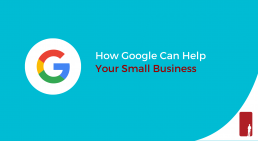How Google Can Help Your Small Business
Google is the most used search engine in the world. But, did you know Google does a lot more than just searches? Google offers a ton of tools for your small business in addition to its search engine.
You should be taking full advantage of all Google has to offer. Here are some of the best ways Google can help your small business:
1. Google My Business
Do you want FREE advertising on Google? Well, all you have to do is claim your Google My Business listing. When customers search for your business or businesses like yours, Google My Businesses helps you to get found on Google Search and Maps. Below is an example of local Google My Business results for the search “Italian restaurants, Toronto.”

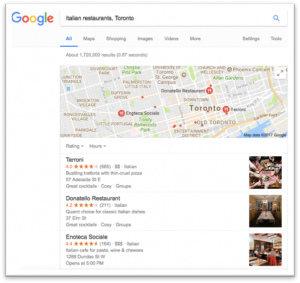
2. Google AdWords
So you have tried an organic search, but you want it to rank in Google Search. Google AdWords is Google’s pay-per-click (PPC) product which helps you to create ads that target specific keywords to your business. PPC ads appear above the organic search results on Google. Below is an example of local Google AdWords results for the search “Field Marketing, Mississauga.”
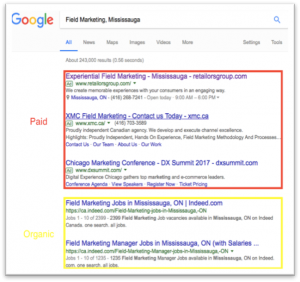
Related Article: Establishing your Online Presence as a New Business Owner
3. Google Keyword Planner
Google Keyword Planner is a tool meant to help your Google AdWords efforts. However, if you are looking to boost your organic search, Google Keyword Planner helps you with your Search Engine Optimization (SEO) efforts by identifying keywords to target. The keywords you select is just as valuable as the content you create when it comes to SEO. This is important because if Google cannot find your site, you’re missing out on opportunities to drive traffic to your business.

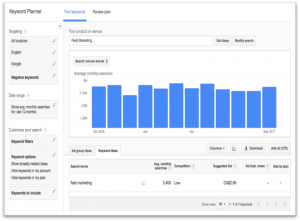
4. Google Search Console
As a small business owner, you probably have a website but, can your customers find you on the web? Google Search Console helps you monitor and maintain your site’s presence in Google Search results. The best part about it is that it’s FREE and you don’t have to sign up for Search Console for your site to be included in Google’s search results.


Related Article: Quick SEO Guide for Small Businesses
5. Google Analytics
One of the most popular web analytics tools is Google Analytics. This is an important tool for monitoring and analyzing traffic on your website from SEO and SEM initiatives. According to Google, Google Analytics “helps you analyze visitor traffic and paint a complete picture of your audience and their needs, wherever they are along the path to purchase.”

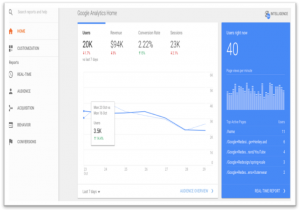
About Retailors Group
The team at Retailors Group has over 15 years of retail sales and field marketing experience. Retailors Group takes the time to understand your brand and align your core values into a tailor-made solution that builds a long-lasting relationship with your consumers.
We offer services in Experiential Field Marketing, On-site Sales Assist, Retail Management, and Digital Marketing.
Proactive Hiring vs Settling for the Best Available Candidate
Operators in Retail will tell you that the most frequently asked question from their executives is – how do we increase sales? How do we capture a bigger market share? How do we get 10% growth vs last year’s sales?
Every leader will have a different answer to the questions asked above, and there are many ways to look at your business and identify an opportunity where you can do better. In the next few articles that I write, I will explore different components of the retail business that directly impact sales.
In this article, I want to focus on a very basic one. Hiring.
Specifically, I want to explore the difference in proactive hiring vs reactive hiring.
Being an operator in retail carries countless responsibilities and most of them require time-sensitive completion and high attention to detail. So, a lot of what I do in retail is both, urgent and important.
Mistake #1 – I am fully staffed and I don’t need to do interviews.
When my stores are fully staffed and I am not in need of additional employees the urgency of recruiting and doing interviews becomes very low. With that being said, has it stopped being important for me to find the best talent out there?
There are many ways I can effectively spend my time that requires my urgent attention so I will not bother looking for good talent, especially when there isn’t a current opening.
Mistake #2 – I will pick the best available candidate from the round of interviews I do
When my stores are short-staffed the hiring need becomes both, urgent and important, so what I do then is to schedule a bunch of interviews and pick the best candidate/candidates from the pool of people I interviewed. Seems like a normal process, right?
Mistake #3 – I picked the best available candidate so the onboarding process will be shorter
Now that I hired the best individual from the pool of candidates I had, I am convinced that with their experience and background they will not need as much training and on-boarding so I will take some short-cuts in their onboarding process in order to get them on the floor sooner.
Here is what my experience has taught me on proactive hiring. I worked a program where all store managers were consistently recruiting and interviewing. Regardless of current staffing levels, every manager was responsible for doing one interview a week.
Related Article: 6 Benefits of Pop-Up Shops
When I am in need of an employee and I interview ten candidates I pick the best available candidate. Regardless of how strong or weak the total pool of candidates was, I had to pick one. It might be a superstar or it might be a below-average candidate, it just so happened to be that at that moment they were the best available.
Doing one interview a week allowed me to pass on and keep the average and above-average candidates on file. When I found a superstar I hired them, regardless of current openings. In retail, more often than not you can hide the additional payroll costs of an employee without doing a lot of damage to the P&L. With current turnover rates in retail, I know the need will come soon anyway.
Now imagine what your business would look like if you and your team consistently hired superstars? What is possible?
The best part is, it only takes an hour a week to do a proactive hiring program.
About Retailors Group
The team at Retailors Group has over 15 years of retail sales and field marketing experience. Retailors Group takes the time to understand your brand and align your core values into a tailor-made solution that builds a long-lasting relationship with your consumers.
We offer services in Experiential Field Marketing, On-site Sales Assist, Retail Management, and Digital Marketing.
Establishing your Online Presence as a New Business Owner
Deciding to venture off and be a new business owner is an exciting time. Albeit exciting, any existing or new business owner knows that the first stage of opening your new business is tough, painful, risky, requires long hours, and can be stressful at times.
You are trying to get your business off the ground and you start to realize that prioritizing your time will be a challenge. Where do you spend your time? Is it in business development? Maybe you should set up a good accounting system to avoid future pains, or maybe you should spend some time hiring because getting the right people at this stage is key.
Getting caught up in the whirlwind of necessary activities leaves very little time for important but non-urgent activities. We all fall for it. Establishing your online presence as a new business owner at the beginning stages is crucial to have long term success.
Below you will find some items to do in order to establish your online presence as a new business owner.
Get a website

Don’t push it aside for later. It takes time to develop your online presence and the longer you push this aside, the longer it will take for you to be found.
Nearly 50% of small businesses in Canada do not have a website. Here is what they are missing out on:
- 95% of consumers use search engines to find local businesses. Appearing on popular search engines like Google is directly associated with your website. (Source: searchengineland.com)
- Your website is open 24 hours a day, 7 days a week to provide information to your consumers
- Businesses that do not have a website lack credibility. If a potential consumer wants to know more about you but can’t find you online, they might second guess doing business with you.
- Competitors that have websites are taking business away from you
I’m sure there are a dozen or more reasons why you need a website, but we’ll save that for another day.
Related Article: Quick SEO Guide for Small Businesses
Create high-quality content on your website

When the Internet first came about and businesses were creating websites, they treated them more like an online brochure. It was effective back in the day but now websites are best utilized for more than just who you are and what you offer.
You’ve probably heard this before, but here it is again, content is king.
Having a section on your website for a blog or original articles tailored to your audience will allow you to create a community of people that will keep coming back for more.
Small businesses with blogs get 126% more lead growth than small businesses without.
Let’s not forget the benefits of Google loving relevant content and making it available for searchers to find giving you even more people that know people to join your community. The organic momentum from this compound to something greater than you could have ever imagined.
Get on social media

Social media is not just about liking pictures and entertaining yourself. If you’re a small business owner, there are a variety of reasons to get onto social media.
A staggering 67% of the population in Ontario, Canada use social media. Those that use Facebook specifically spend on average 40 minutes a day on this social platform.
Outside of the large audience, having a social media presence helps with brand awareness, loyalty, and authority. Consumers and search engines will establish more trust behind your brand when you’re available on social media.
Similar to your website, having a presence on social media isn’t just about showcasing who you are and what you do. Remember that cool content that you are producing on your website? Share it on social media! Your reach will now exponentially increase.
Related Article: 7 Reasons Social Media Marketing is Still Underrated
Being available on social also gives you the opportunity to improve your customer service. Giving consumers a platform to express delights and frustrations gives you, the business owner, a chance to show gratitude and gain valuable feedback. Those that are upset will allow you to try and turn an unhappy customer into a happy one.
There is quite a bit of platform you can choose to establish your social media presence. Don’t try to get on every platform. Find what works for you and your industry and stay active. It’s better to have one social media account and be hyperactive vs being on 4 and not being active.
Register your company and website on business directories

Staying consistent with various points made in this article, registering on online business directories helps to further increase your online presence.
Ultimately, you want to be found online and there are a plethora of directories that you can register on. There are free ones and paid ones, so do your due diligence on finding the right one for your business. Here is a good list of online directories to check out.
Once you establish your website and social media accounts with relevant content you can point these sources to these directories. In turn, these directories will work on your behalf to point consumers to you.
You will now be accessible, visible, and reputable once you tie all of these components together.
Remember, getting your online presence may seem non-urgent but it is very important. It is a lot of hard work that requires nurturing in order to develop but the rewards will be well worth the time.
About Retailors Group
The team at Retailors Group has over 15 years of retail sales and field marketing experience. Retailors Group takes the time to understand your brand and align your core values into a tailor-made solution that builds a long-lasting relationship with your consumers.
We offer services in Experiential Field Marketing, On-site Sales Assist, Retail Management, and Digital Marketing.
Quick SEO Guide for Small Businesses
If you’re like most small business owners, you’ve tried different methods of traditional marketing. These methods of traditional marketing include print advertisements such as direct mail and newspaper print ads.
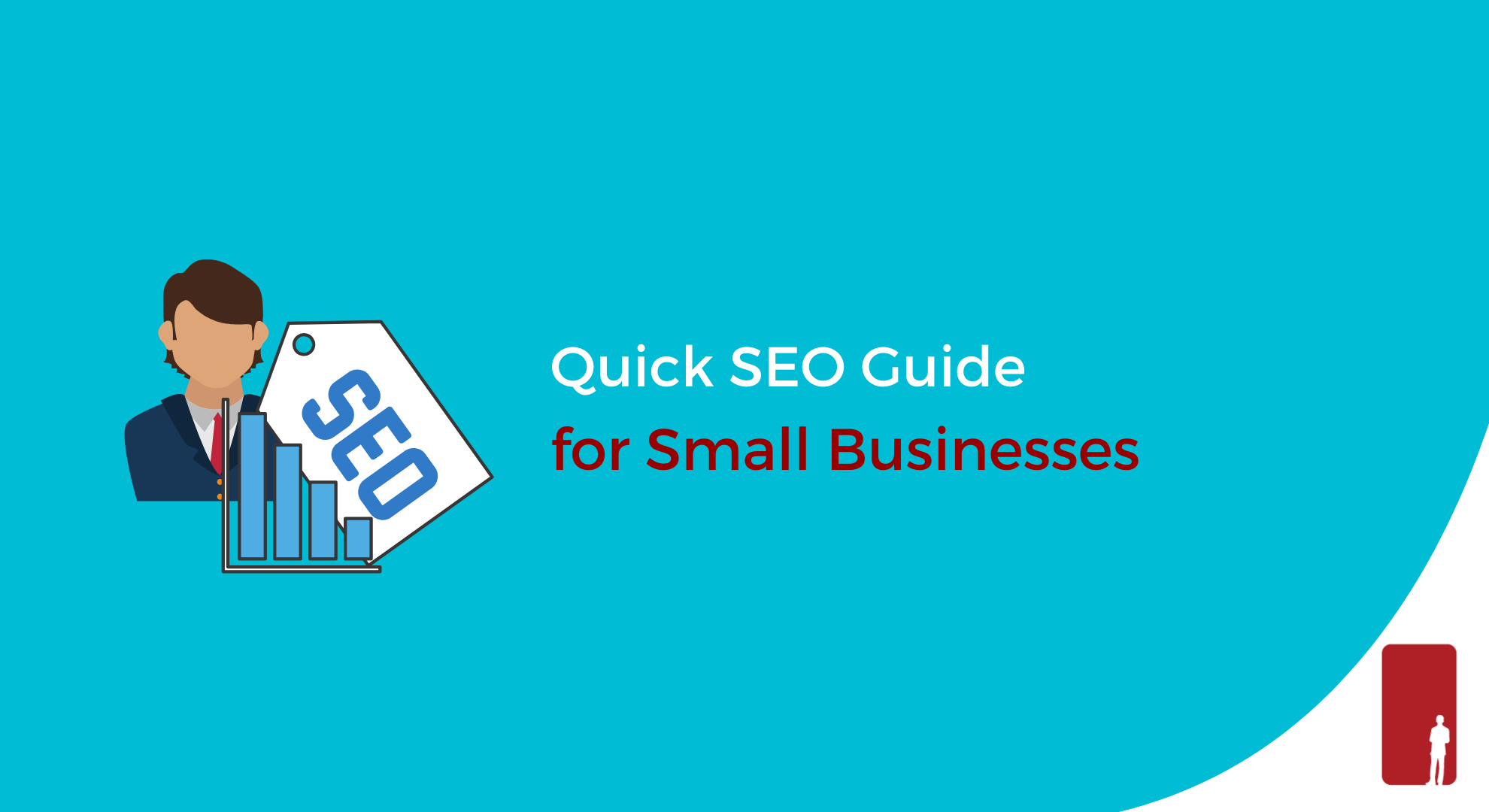
However, you’ve probably overlooked methods of digital marketing despite its importance because you don’t understand it. It is crucial for small businesses to have a digital marketing strategy as it adds credibility to your business and offers a greater return on investment.
What we will cover today is an SEO guide for small businesses which will hopefully give better clarity on how it can help you.
What is SEO?
SEO or Search Engine Optimization is the process of getting traffic from “organic” or “non- paid” search engine results. SEO is required to increase awareness in search engines such as Google, Yahoo, and Bing to improve rankings and drive traffic to your website.
Have you ever wondered how websites or local listings are shown and ranked on search engines? Search engines rank websites and local listings according to their relevance to the public. Having good SEO makes it easier for search engines to understand your content for a higher ranking and an improved user experience.
Do I need SEO for my website?
Yes, you need SEO for your website because most Internet users use search engines to look for what you’re offering. Since search engines provide targeted traffic, the words users type into the search box is valuable. If search engines cannot find your site based on the search query, you miss out on opportunities of getting traffic driven to your website.
How can I improve my SEO?
There are three ways you can improve your SEO:
1. Website usability and appearance
Your website should be responsive and organized. This means that it should be easy for users to navigate through your website to achieve their objectives or find the information they need.
2. Using the right keywords
The visibility of your website depends on the right keywords. You should consider how you would search for things online. So, your keywords should be as specific to your business as possible.
3. Creating original and shareable content
It is important to create opportunities for your business. You can do this by sharing your content such as photos, videos, and blog posts on social media, as well as bloggers and influencers. This will help to increase the rank and visibility of your website when users are searching for your business on search engines.
Can I do SEO for myself?
SEO can be difficult enough to make your head spin. However, even understanding the basics can make a big difference. Depending on your time commitment and willingness to learn, you may decide to use this SEO guide and take on SEO yourself or hire an expert to handle it for you.
There are many digital marketing companies like Retailors Group who can help you tailor an online marketing strategy that will increase brand awareness, customer loyalty, and generate more leads for sales.
Benefits of using Experiential Marketing for your Next Campaign
Engaging consumers with all of the different media options available has never been more difficult. To ensure your consumers remember your brand with all of the marketing noise around them is a challenge every company faces. That is where experiential marketing can help.
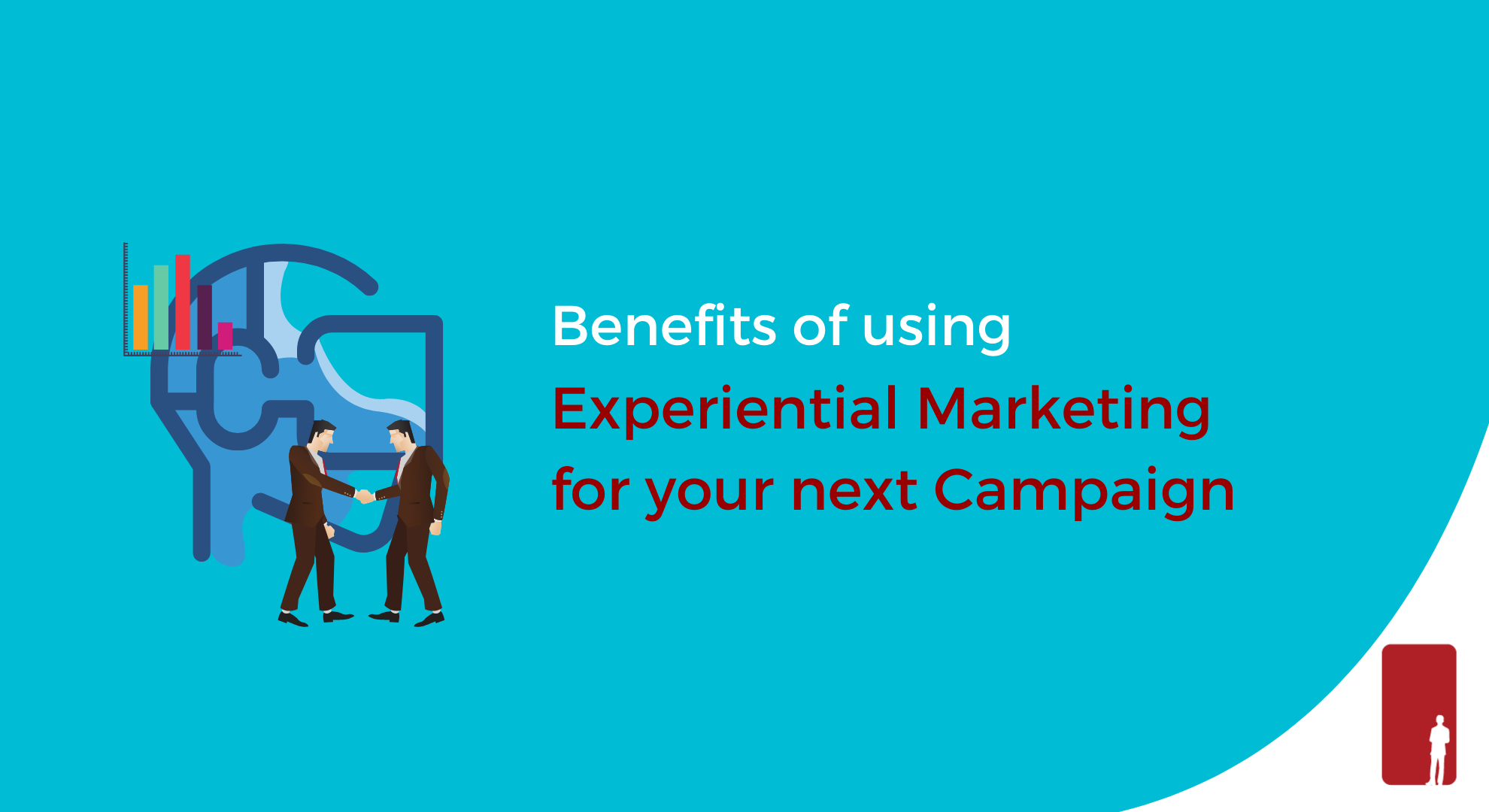 Experiential marketing is a marketing strategy that involves direct face-to-face engagement with consumers in an interactive way. This strategy works most effectively in high traffic environments like retail and events.
Experiential marketing is a marketing strategy that involves direct face-to-face engagement with consumers in an interactive way. This strategy works most effectively in high traffic environments like retail and events.
So with a tight marketing budget, why would you consider this strategy for your next campaign?
Effectiveness
Traditional marketing strategies like digital marketing or print are essential for day-to-day marketing but nothing beats the interaction with a brand in person.
Consider this, the goal you want to achieve in the customer journey is a long term relationship. Meaningful relationships are established, developed and maintained far more effectively face-to-face than any other medium.
Stand out
As mentioned earlier, competing for your consumer’s attention is very difficult. Using experiential marketing is the perfect strategy to help you stand out.
When experiential marketing is done correctly, it is fun, interactive and engaging. Put the experience in experiential and you have a recipe for a memorable campaign that will allow you to stand apart from the competition.
Give your social media a boost
Trying to get your social media accounts for some fresh and exciting content? Nothing gives your social media a better boost than experiential.
Whether you want to get your consumers to interact with your brand on social or just simply post engaging photos and videos of your event, experiential marketing gives you the platform to get creative with your other marketing mediums.
Showcase your products and services
When your company launches a new product or service, the awareness and value proposition needs to be properly conveyed to gain maximum traction.
Everybody learns through different mediums. Some like to read, some like to listen, while others need that explanation from a real person.
Put together an interactive experiential campaign to allow your consumers to touch and feel your product or get a proper explanation of how your service can benefit them.
Generate sales and leads
Getting leads from social, print, tv or radio allows you to get a great reach, but at the end of the day, a trained professional will generate far more sales and leads vs any other medium.
Leveraging an opportunity at a high traffic event can generate sales immediately if that is what your strategy involved, but creating a memorable experience can still be enough to influence someone to buy in the future.
The various marketing strategies that your company currently uses are great for communicating, but the experience from experiential will get your consumers talking and those conversations will lead to loyalty, awareness and sales.

